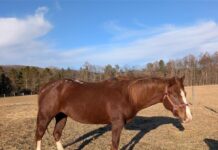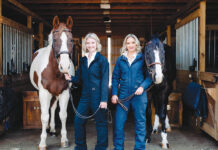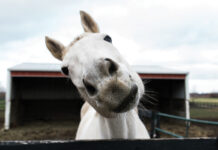The following is an excerpt from Winning with Horses, by Adam Snow and Shelley Onderdonk, DVM, about preparing for competition through some self-reflection.
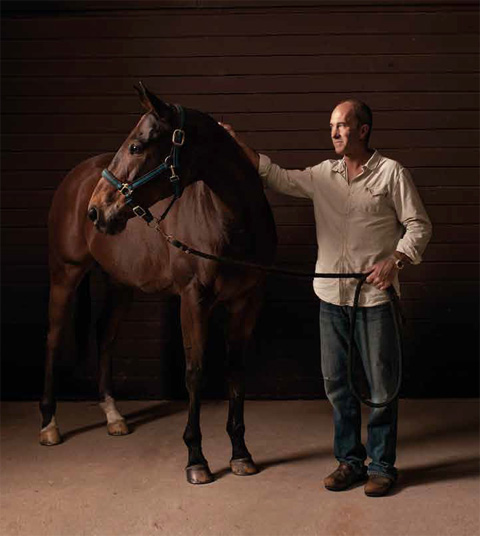
Regardless of which horse sport you compete in, winning is the preferred goal. But it is typically nowhere in my own preparatory thoughts. In fact, the less I think about results, the better I can play. If result-oriented expectations do arise pre-competition, I enjoy the good ones, let the not-so-good ones slip away, and trust that when I begin playing, all expectations will disappear.
The line of questioning that most inspired me was something called the four resonance questions, developed by the sports psychologist Doug Newburg:
1. “What feelings do you seek to experience in your sport?”
2. “What prepares you to experience these feelings?”
3. “What prevents these feelings from occurring?”
4. “How can you get these feelings back when they are lost?”
Sorting through my answers to these questions, I was eventually able to articulate my “dream” in my sport. Although I wrote the following passage when I was 10 goals and 39 years old, most of it still holds true for me today:
The fall season has come and gone—some good, some bad. The other day I found a quote in a book—Close Range by Annie Proulx—which I had underlined years ago. It inspired me. Here is what it said about the “rough, bruising life” of a young rodeo rider: “…when he got on there was the dark lightning in his gut, a feeling of blazing real existence.”
This rings true for me. The dream for my polo is that feeling of blazing real existence. It makes me feel alive. One way that it blazes is that my senses are wide open when playing, totally perceptive, and acutely sensitive. Maybe it’s adrenaline, maybe it’s the sense of challenge about using my skills toward a contest. Perhaps it’s my “love-hate” relationship toward competitive situations—“Who is better?” Whatever, why-ever, I know that my gut blazes and I get that feeling of aliveness.
My dream is to find this feeling of intensity and sensory connection when I am playing my game. I can even learn to appreciate it (enjoy it?) while it’s there, and not only after the event. I reach this state through giving it my all; through thinking good thoughts, which enhance my confidence and ability to play well. Perhaps the stars just lined up correctly? This is the challenge: getting myself to this state of being. And it is another state of being—one of total awareness. I’m acting by “letting go” and letting my body lead. I’m not looking much at other players (teammates, opponents) or umpires. I’m trusting the strength of my horses; they feel a part of me. I may have a short outburst at an ump or opponent, but my anger quickly dissolves because there is no time. I have the next play to execute or prepare for. I am in it. My mind is comfortably locked on my objectives. These are simple and clear.
I am human and unnecessary thoughts do arise, even during best-best performances: “Geez, I’m playing one of my best games ever!” “I missed those two goals, I really want to finish my next chance—who’s watching?” “I hope we win this one, I just got out-dueled.” These thoughts are there, but when I’m living my dream and playing from my gut, I can deal with them. I recognize that it’s okay to have them—everybody does—and bring myself back to my breath, my tree, or my “next play” mantra. Sometimes, when the feeling doesn’t come easily in a particular match, the best technique is to try to “just be there,” with a calm mind, and trust that the game will get into me. That can be enough. It allows the sport to bring out my instincts, my anticipation, and hopefully my total connection with my horses and what I am doing. Outside the parameters of my field, good things come—accolades, money, team offers—because of my connection inside that field, and because of my mindset, which ironically has a lot to do with not caring what people think outside the boards. Even my goals of playing at the highest level of the sport for a long time, of being a great 10-goal player, of fulfilling my potential, are really things outside the boards. What is inside is that emotion of blazing real existence. Visit this often, go for it, and if it’s meant to be, my goals will take care of themselves.
My dream is to immerse in the feelings of intensity that I get from playing the game. I put myself in the most competitive situations possible because these challenges bring the “lightning in my gut.” Love-hate it may be, but these big feelings are my dream. They exist because I care.
I believe competition is a time to emphasize our strengths, to focus on positive things in our control, to trust and play. This is the best way I’ve found for putting expectations to the side, letting go, and enjoying the performance. Famous dance choreographer Alvin Ailey said that “freedom comes through discipline.” The discipline to prepare to the teeth, gives us the freedom to perform all out, thought-free.
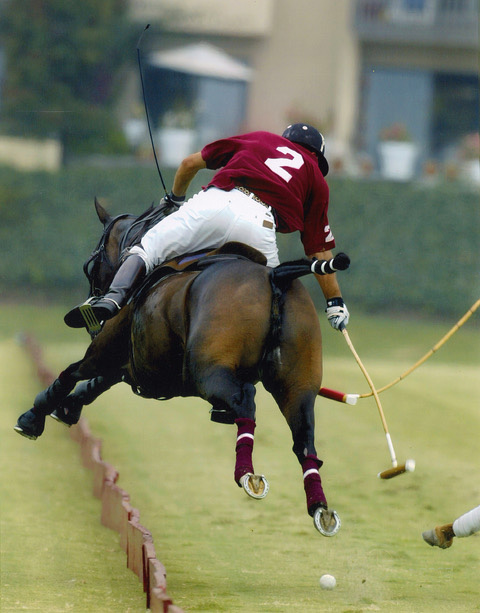
I have come to believe that our mood, too, is in our control. Being positive simply means that you see the choices in front of you. We may sense that we woke up on the wrong side of the bed, or that our warm-up was a disaster, but it is usually possible to find (or invent) a positive lining—“bad rehearsal means good performance”—and shift focus onto the little things within our control. “What do I love about my sport?” is a question I ask myself before entering the competitive arena. For me: I love the ball, the teamwork, and the feel of the horse under me.
Free yourself of result-oriented thoughts, and bring your awareness into the present. Feel your calming breath flowing in and out, see the texture of the footing, hear the cadence of your horse’s stride. With your senses wide awake, and in the here and now, execute the task at hand to the best of your ability. Trust yourself. Trust your horse. Put your focus on the doing. After all, as Chungliang Al Huang and Jerry Lynch say in Thinking Body, Dancing Mind, “Focusing on the moment-by-moment joy and elation of the event will usually be reflected in winning outcomes.”
This excerpt from Winning with Horses is reprinted with permission from Trafalgar Square Books. Get a copy here. This is a web exclusive for Horse Illustrated magazine.

